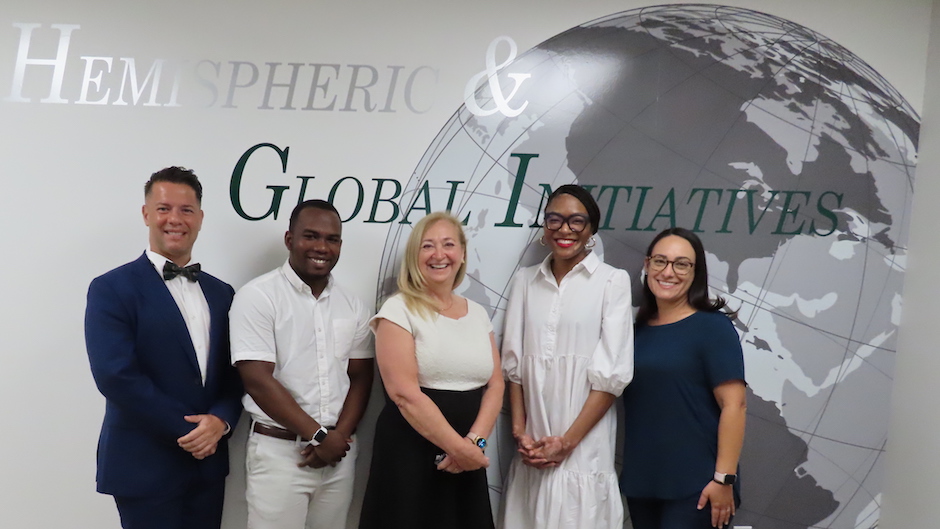2021 Minority Health Research Training Program Underway
SONHSNews,

This summer the University of Miami School of Nursing and Health Studies (SONHS) welcomed a new cohort of promising grantees from around the United States to take part in its prestigious Minority Health and Health Disparities Research Training Program (MHRT), a grant program of the National Institutes of Health’s National Institute on Minority Health and Health Disparities (NIMHD). The five-year grant, renewed to the school in 2019, is intended to improve representation of research scientists from health disparity populations (racial and ethnic minorities, socioeconomically disadvantaged backgrounds, and rural areas) in the biomedical, clinical, or social sciences.
Selected participants work with the school’s global research partners to advance human understanding of a range of important health issues, from deadly arboviruses to cannabis use and chronic disease. “MHRT is crucial because of the current shortage of Hispanic, Black, and Native American researchers in the health professions,” explains Johis Ortega, associate dean for Hemispheric and Global Initiatives at SONHS and Principal Investigator on the MHRT grant.
Meet the SONHS MHRT 2020-2021 grantees.
Each year, Ortega and his team select a handful of new trainees ranging from undergraduate to postdoctoral levels. Those chosen participate in an intensive Global Health Disparities Summer Research Institute, a seminar on research dissemination and preparing for a career in health disparities research, and a writing workshop. The centerpiece of their experience is 10 weeks spent conducting research with mentors from partner institutions in Miami, Latin America, and the Caribbean.
“Our participants are some of tomorrow’s most promising health disparities scientists,” says Ortega. “This experience gives them hands-on opportunities to work with noted international researchers and in the process, it opens their eyes to new cultures, populations, and career possibilities.”
COVID-19-related travel restrictions required all of last summer’s placements to be virtual, but this year the majority of trainees were face-to-face. Two students, for example, traveled to the University of Miami from out of state to conduct research in UM labs, while four more were cleared to complete their MHRT research plan activities on site at Universidad de Costa Rica (UCR) and Universidad de Los Andes in Colombia.
Jennifer Francisco was one of the MHRT participants who traveled abroad. A first-year Doctor in Dental Medicine student at the University of Puerto Rico Medical Sciences Campus, she spent the summer at UCR’s Center for Research in Tropical Diseases, assisting her MHRT research mentor, Eugenia Corrales Aguilar, study antibody neutralization profiles in human and wildlife sera against arthropod-borne viruses, or arboviruses, like Zika.“It is very important how programs like MHRT allow minorities to participate in high-quality research, but most importantly to work alongside members of other underrepresented communities,” says Francisco. “This aspect will allow us to feel empowered through science and promote the development of knowledge that will put us one step closer to equity.”
MHRT’s purpose is to ensure that students like Francisco go on to pursue careers in biomedical and/or behavioral health research by exposing them to collaborative research training, domestic and international health issues, and health disparities research initiatives taking place both in the U.S. and in low and middle income locations that provide significant numbers of immigrants to the U.S. After their official participation in MHRT ends, grantees continue collaborating with their mentors on scientific presentations and publications, as well as graduate school applications and career opportunities in health disparities research.
So far, the experience has only solidified Francisco’s view of research as a tool for helping others, and disadvantaged communities in particular, find better health opportunities. “For me health equity means not only that everyone has access to high-quality health services,” says Francisco, “but that people from disadvantaged backgrounds can receive the necessary and specific treatment that will benefit them the most.”
For information about the School of Nursing and Health Studies MHRT program, visit https://mhrt.sonhs.miami.edu or email mhirt@miami.edu.